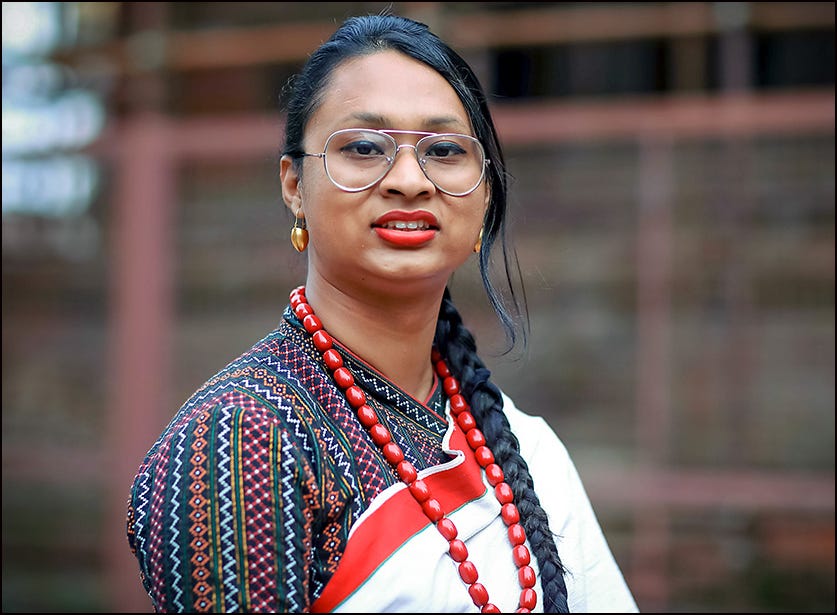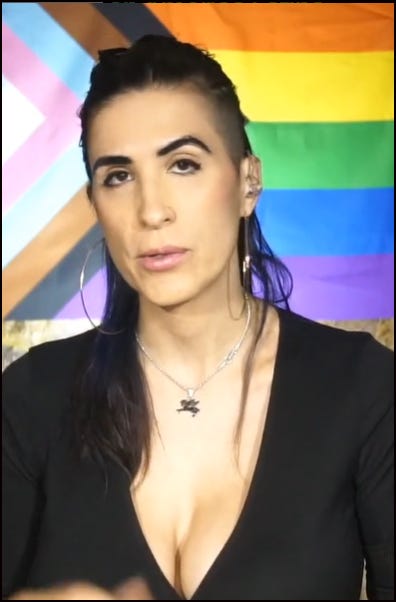The BBC has just published its annual 100 Women List. And, just as we’ve come to expect, it includes a trans-identified male.
In 2013 the BBC pledged to better represent women in its international news output. To this end, it launched its 100 Women List.
But only a year later this initiative was totally undermined when the list included a drag character, Conchita Wurst, the onstage persona of an Austrian man called Thomas Neuwirth. That the BBC included a man with a beard in a dress on a list supposedly intended to celebrate the most influential and accomplished women in the world speaks volumes.
Most years since then, even with approximately 3.905 billion females on the planet to choose from, the BBC has seen fit to include trans-identified males on a list supposedly dedicated to celebrating the achievements of 100 women.
In 2016 The 100 Women List included trans-identified male, Seyan Arman, a DJ and entertainer from Turkey. In 2018 it featured trans-identified male, Ophelia Pastrana, “An outspoken transgender media personality” from Columbia. In 2019 it included trans-identified male, Nisha Ayub, a transgender rights campaigner from Malaysia.
In 2020 The 100 Women List included model, Lea T. Amongst all the inspirational and pioneering female scientists, teachers, sportswomen, politicians, aid workers, artists and activists etc was a trans-identified male who performs stereotypical femininity to model swimwear in Vogue and Marie Clare.
In 2021 The 100 Women List included two trans identified males. They were Alba Rueda, a trans activist and politician from Argentina, and Iman Le Claire, a performer and activist originally from Egypt now living in NCY.
Last year’s 100 Women List also included two trans-identified males on it.
They were Erika Hilton, an LGBTQ+ campaigner and politician from Brazil, and Efrat Tilma, an LGBTQ+ campaigner and volunteer with the Israeli Police.
This year’s 100 Women List has just been published and, yet again, the BBC has seen fit to include a trans-identified male; Rukshana Kapali, a housing campaigner and LGBTQ+ rights activist from Nepal.
No doubt, like most of the trans-identified males included in previous years, Kapali is a worthy campaigner and activist and more than deserving of praise and recognition. But he does not belong on a list that is intended to celebrate women.

The BBC claims that its 100 Women List is “Putting women at the front and centre of news stories”. Can it really not see that by including males, it is excluding women? Every time the BBC features a trans-identified male on this list, it robs a woman of her place on it. A woman whose story will now not be heard.












Oh no they’re at it again! F-ing hell. And just in time for the weekend. We’ve had a tough week, the WoW, the nhs, Sandi and now the BBC. I need a drink! again.
I was just thinking re all the highly sexualised pictures of men in dresses. I don’t have a single female friend or family member or even female acquaintance that takes pictures of herself in this way and posts them online. Not a single one!- to my knowledge at least, and i’m not judging any woman that does for a moment, i’m just saying it doesn’t strike me as a ‘common’ thing. But with trans identifying men, it seems to be fairly high on their agenda of ways to communicate to the world that they are ‘real’ women! Honestly do they think that female human beings spend their whole time preparing themselves in this way. Maybe they do? Have i only known the boring ones all this time!? I’m beginning to think i’ve not been to any good parties ever. Poor me!
Seems inevitable that whoever made that list has got balls (literally, not figuratively).